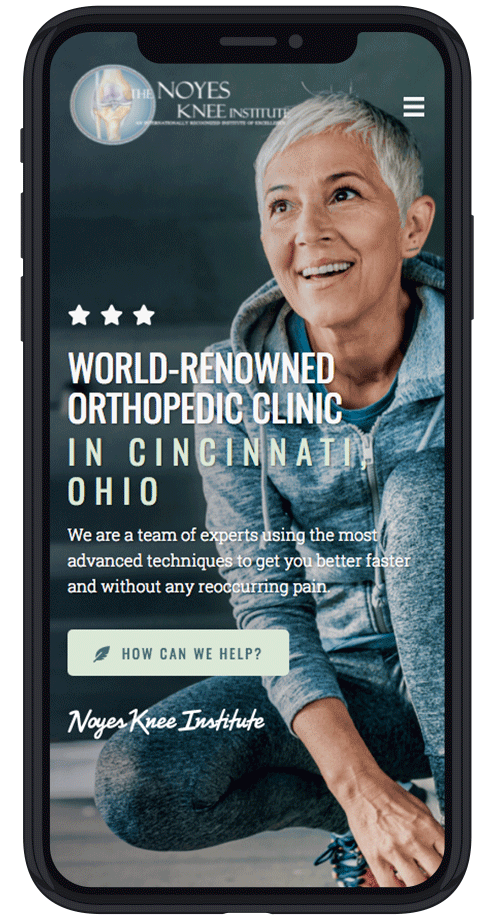Published On
Category
Athletes are more likely to require the services of an orthopedic knee surgeon for severe ACL tears. Minor tears may heal naturally or with non-operative approaches, such as physical therapy. It’s vital to consult an experienced knee surgeon to determine the best solution for your needs. Here’s an overview of sports medicine available for ACL tears:
The Initial Treatment of an ACL Injury
Often the patient has a non-contact turning or sudden twisting event at the knee joint and hears a “Pop” and has a giving way episode. There is usually swelling in the knee joint and difficulty in walking and putting weight on the injured leg that does require crutches.
The initial ACL tear treatment begins with rest, elevation, and cold compression. Bracing may be necessary in some cases. After an ACL tear, your first course of action should be to seek a qualified orthopedic surgeon and sports medicine specialist. A comprehensive assessment of the injury is key to proper treatment and speedy recovery.
Your surgeon will perform a physical examination of your knee joint in a careful manner realizing an injury has occurred. You will also be under the care of a physical therapist and athletic trainer to start range of motion exercises and light muscle exercises to prevent muscle weakness.
If your torn ACL needs surgery to regain knee stability and function you’ll need to prepare for the procedure. Knee surgery is not performed until you have regained knee motion and your muscle function has returned to provide good function and support the knee joint.
Two Types of Sports Medicine Programs for ACL Tears
The acute cruciate ligament (ACL) may suffer varying degrees of tear and require combined approaches to aid healing. Sports medicine offers two primary solutions for athletes and the general population seeking ACL tear treatment: operative and non-operative.
1. Non-Operative Management
Non-operative management in sports medicine refers to approaches focusing on physical therapy, bracing/support, and activity modification. The knee surgeon may recommend non-operative management to those who don’t intend to return to sports.
Non-operative management includes activity modification to avoid any turning, twisting or cutting activities that risk the knee giving way and further knee damage such as tearing a meniscus. Non-operative management is best used for sedentary patients who do not routinely engage in recreational activities.
Younger active patients generally choose to have the knee stabilized with surgery to avoid a “trick knee” that may give way with increased activity or sports. Some patients with high demand work activities such as climbing, construction, working on uneven ground, or requiring knee stability for other work activities, often require surgery to provide knee stability and prevent a giving way episode or falling at work that would be unsafe.
2. Operative Management
Operative management involves surgery to replace the ACL with a graft that reconstructs the ligament. There are graft choices that involve taking a portion of a tendon about the knee joint. These procedures have undergone major improvements and success with arthroscopic surgery and the procedures are performed thru small incisions with immediate motion and physical therapy after surgery. A knee surgeon can help you determine the best approaches. The ACL graft is most commonly from the patient and is call an autograft. In some cases a transplant graft from a tissue bank is used called an allograft, however this is a weaker graft and takes longer to heal and may not be recommended for athletic patients.
After surgery there is a graduated program with increasing exercises and activity every month. The goal is to have the patient off of crutches and resuming normal daily activities by 8 to 12 weeks. However, it takes months for the new ACL graft to heal and it also takes months for muscle strength to return to normal. Studies show that if a patient returns to sporting activities too soon after ACL surgery, an unacceptable high reinjury rate may occur with a new ACL tear. It is very important to pass specific tests of muscle strength, agility, and coordination of the entire body to limit the risk of another knee injury.
There are very specific return to sports programs that are tailored and individualized to each patient and athlete by the surgeon-physical therapist-athletic trainer team that have been published by the Noyes Knee Institute and are used throughout the country. A nationally recognized program developed at the Noyes Knee Institute called SPORTSMETRICS is designed for female athletes to prepare them to return to sports and decrease the serious risk of a repeat knee injury.
Trustworthy Orthopedic Knee Surgeon
Recovering from an ACL tear requires a comprehensive diagnosis and treatment program from an experienced orthopedic knee surgeon and professional team including physical therapists, athletic trainers and strength and conditioning specialists. You should arrange for a consult as soon as you get injured or experience the symptoms of an ACL tear. Working with an expert team of specialists can prevent further injury to your knee and begin the recovery process.
At Noyes Knee Institute, we provide highly specialized orthopedic services for athletes, fitness enthusiasts, and the general public. Consultancy with Dr. Frank R. Noyes, M.D. and the entire physical therapy and athletic trainer team will inform you about all your options for the best recovery.
Dr. Noyes is a board-certified orthopedic surgeon specializing in knee surgery and sports medicine and an internationally recognized authority and surgeon.

